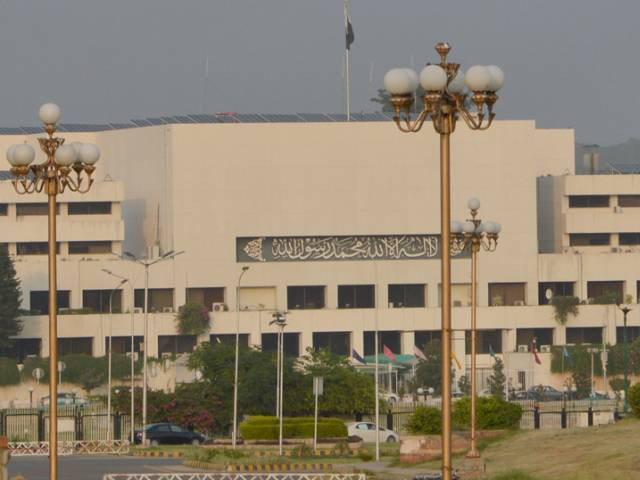Services chiefs tenure bills clear last hurdle
PML-N, PPP support treasury-backed legislation, bills sent to president for assent

PHOTO: EXPRESS
With the two major opposition parties – the PML-N and the PPP – already on board, the opposition-dominated house passed the bills with majority vote during a 20-minute session. The lower house of parliament has already passed the proposed laws.
The passage of the bills capped the long-debated issue which arose in November last year when the Supreme Court gave the government six months to set the service terms, including tenure, of a chief of army staff, through an act of parliament.
The government has challenged the verdict, but decided to legislate nonetheless. Defence Minister for Pervez Khattak tabled the Pakistan Army Act (Amendment) Bill 2020, Pakistan Navy Act (Amendment) Bill 2020 and the Pakistan Air Force (Amendment) Bill 2020 in the upper house of parliament.
The house defence panel had vetted and approved the proposed laws a day earlier.
When the house convened on Wednesday, Leader of the House Shibli Faraz requested the chair to suspend the question hour. Chairman Sadiq Sanjrani allowed Faraz’s motion and let Senator Waleed Iqbal to present the house defence committee report on the bills.
Later Defence Minister Khattak moved the bills for approval. The chair put them up for a voice vote after a clause by clause reading of the amendments. In a rare show of unity, opposition senators shunned their hostility with the ruling party and overwhelmingly said “aye” to the treasury-backed bills.
After the passage of the bills, the chairman adjourned the session until Friday morning. Wednesday’s sitting lasted for 20 minutes only, as no other agenda item, barring the presentation of a few reports, was taken up.
Salient points of the bills
The bills amend the Pakistan Army Act, 1952, the Pakistan Air Force Act, 1953 and the Pakistan Navy Ordinance, 1961, allowing extension in the tenures of three services chiefs and the CJCSC. The bills were then sent to the President Arif Alvi for his assent before their enactment.
The Pakistan Army Amendment Bill 2020 amends the Pakistan Army Act, 1952, to empower the president, on the advice of the prime minister, to specify the tenure and terms and conditions of service of the COAS or the CJCSC, including the grant of extension and re-appointment.
The legislation also ensures that future extensions won’t be challenged before any court. “The appointment, reappointment or extension of the Chief of the Army Staff, or the exercise of discretion by the appointing authority in this regard, shall not be called into question before any Court on any ground whatsoever,” the bill categorically stated.
Similar wording has been used if the civilian leadership decides to give an extension to the CJCSC.
The bills will come into force immediately after the president’s assent but take effect from November 27, 2019. Usually, the president appoints the services chiefs on the advice of the prime minister for three years but now these tenures could be extendable to three more years.
The bills say that the retirement age and service limits prescribed for a general, air chief marshal and admiral shall not be applicable to the army chief, air chief and the naval chief, during the tenure of appointment, reappointment or extension, subject to a maximum age of 64 years.
Throughout such tenure, the COAS shall continue to serve as a general in the Pakistan Army, CAS will continue to serve as an air chief marshal in the Pakistan Air Force (PAF) and CNS shall continue to serve as an admiral in the Pakistan Navy, the bills said.
“The president may on the advice of the prime minister appoint a CJCSC from amongst generals in the Pakistan Army, admirals in the Pakistan Navy, or air chief marshals in the Pakistan Air Force for a tenure of three years,” it states.



















COMMENTS
Comments are moderated and generally will be posted if they are on-topic and not abusive.
For more information, please see our Comments FAQ